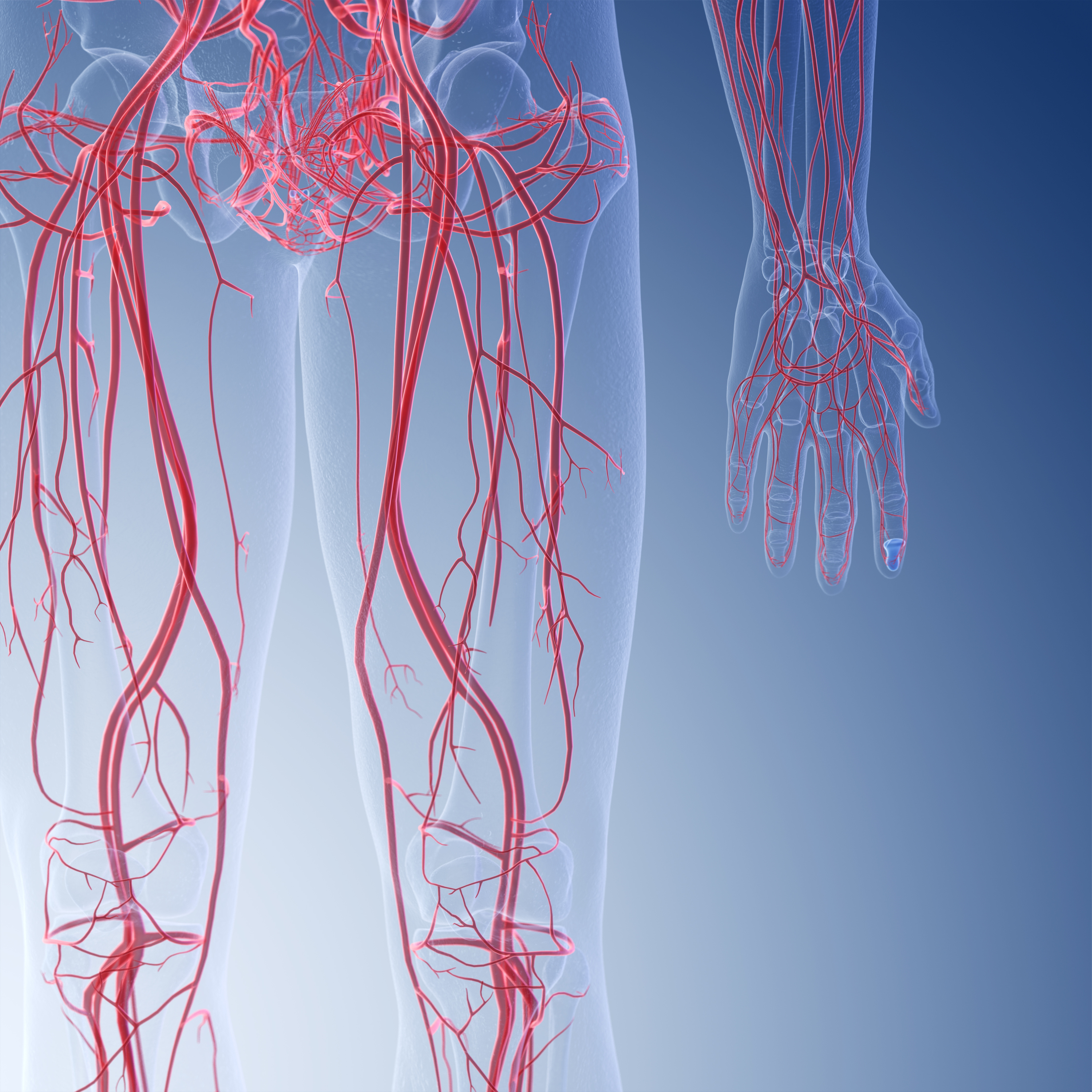Peripheral artery disease (PAD) is a chronic condition that affects 8.5 million U.S. adults. Although the treatment of PAD has evolved over time, clinical evidence on how the disease impacts patients’ mobility and quality of life is limited.
PAD is caused by narrowed or blocked blood arteries in the leg that may result in tissue decay or limb amputation in severe cases. Symptoms include muscle aches and ulcers that reduce mobility and quality of life. Patients also tend to have hypertension or diabetes, and so are at high risk for heart attack and premature death. A growing body of comparative effectiveness research for various PAD therapeutics is still emerging.

The VAMOS program will directly address the needs of underserved populations, including minorities, who are disproportionately affected by PAD and present with more advanced, preventable complications. By establishing a network of multidisciplinary fields and specialties, including cardiovascular specialties, behavioral health, computational health, pharmacogenomics, and many others, the VAMOS program will offer a holistic means of designing care for vascular populations.
Expertise in Quality of Life in Vascular Disease: Insights from the PORTRAIT Registry
VAMOS researchers have established years’ worth of expertise for the assessment and analysis of quality of life in vascular populations. For example, the PORTRAIT registry was created to address the need for an evidence-based PAD management model. PORTRAIT is led by study PI Kim Smolderen along with a whole network of PAD specialists, and represents many patients globally, including those at Yale New Haven Health. The researchers followed more than 1,200 patients with a new or worsening diagnosis of PAD and tracked their quality of life. New findings from the registry in the Journal of the American Heart Association show that patients with depressive symptoms and PAD — especially women — had worse recovery as evidenced by their health status and quality of life one year after treatment.
A key aspect of VAMOS is patient-centered care supported by the insights generated through research. “This is the first study to document how depressive symptoms may complicate PAD recovery even among patients receiving specialty care,” said senior study author Smolderen in the accompanying press release from the American Heart Association.
“A major goal of PAD treatment is improving patients’ health status and quality of life,” said lead study author Qurat-Ul-Ain Jelani, MD, a clinical fellow in cardiovascular medicine at Yale. Jelani added, “Not recognizing or treating depressive symptoms may stand in the way of realizing optimal recovery.”
For this reason, partnerships with patients and their families serve as the foundation of the VAMOS program. Empowering patients and understanding their perspectives is key. The research framework includes risk factors, clinical characteristics, psychological measures, and socio-economic factors. In the Journal of Psychosomatic Research, Smolderen highlighted the prevalence of mental health disorders in over a third of patients with PAD. Stress was a major contributor, especially after a recent diagnosis or an increase in the severity of symptoms.
Variability in guideline adherence is also a key concern. Data published in the Journal of the American Heart Association revealed that one in five patients who attend specialty clinics received adequate evidence-based interventions, including referrals for smoking cessation support or efforts to increase physical activity.
One such study published in the European Journal of Vascular and Endovascular Surgery explored differences in physical activity among patients with PAD in the U.S. and the Netherlands. The authors observed that U.S. patients were more sedentary then their European counterparts. Dutch patients were far more likely to be referred to supervised exercise programs, which helped patients adopt an active lifestyle.
Patient preferences for care and outcomes is essential for VAMOS. The clinical components prioritize community relationships to optimize care, and emphasize outreach to underserved populations. This ensures that the care is accessible and the stories the team documents reflect diverse populations. “What is important for the patient is not always the same as what is important to us,” Mena explained. “We are concerned with 30-day mortality. They care about how to walk from their house to the bus stop when they don't have appropriate shoes.”
Future Opportunities at VAMOS
Solving these challenges involves mentorship to support trainees and young investigators. The VAMOS program enables global leaders in vascular outcomes research to pursue clinical and research interests. The VAMOS team is uniquely training the next generation of leaders in vascular outcomes research. Trainees get exposure to the whole spectrum of vascular disease ranging from carotid artery disease to lower-extremity arterial disease, including critical limb ischemia in a variety of real-world registries, claims data, and clinical trial data.
Mahesh Anantha, MD, a recent graduate from the peripheral vascular fellowship program, was selected as a finalist for the American Heart Association’s Jay D. Coffman Early Career Investigator Award for his abstract “Trends in Hospital Admissions and Outcomes in Patients with Critical Limb Ischemia – Analysis from a National Database.” The Coffman award recognizes outstanding investigators in the field of peripheral vascular medicine.
The VAMOS program is also committed to learning how trainees can adapt to the current pandemic. Samit Shah, MD, PhD and Yulanka Castro-Dominguez, MD co-authored a manuscript focused on the effect of COVID‐19 on interventional cardiology training in the U.S. and proposed strategies to minimize potential knowledge gaps.
To learn about opportunities to improve vascular health outcomes with the VAMOS team, visit the website.
Article updated June 7, 2022.
